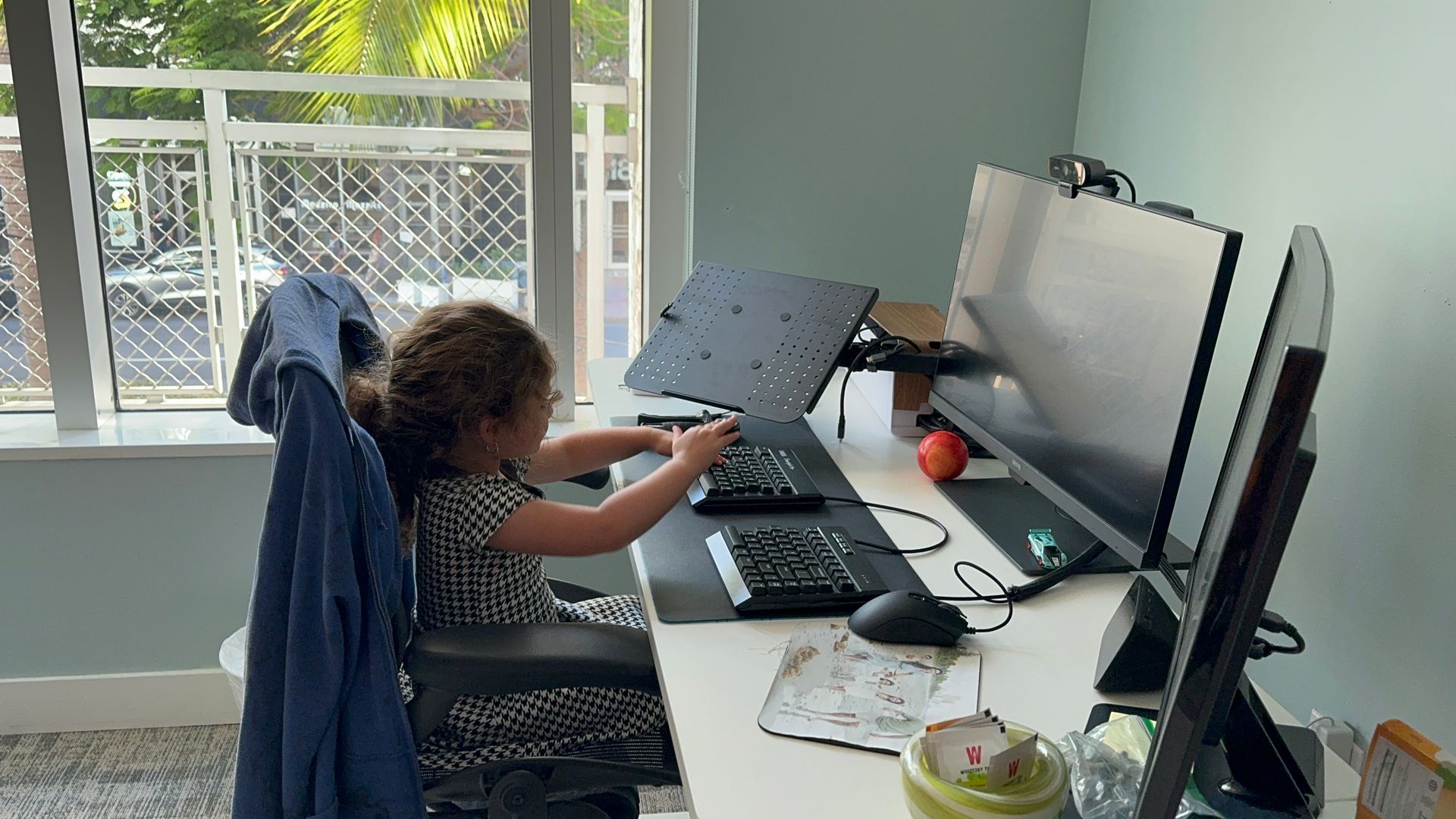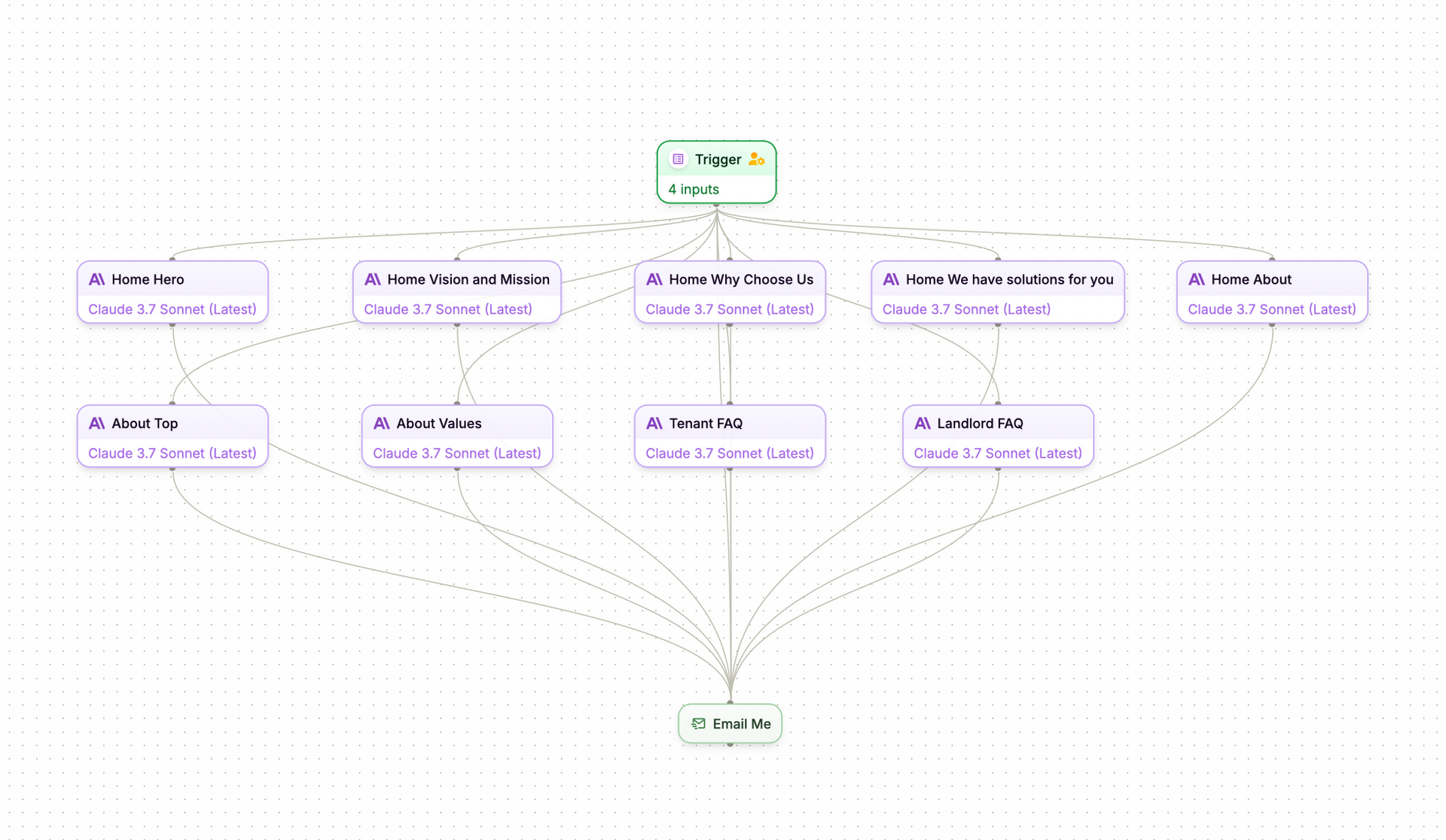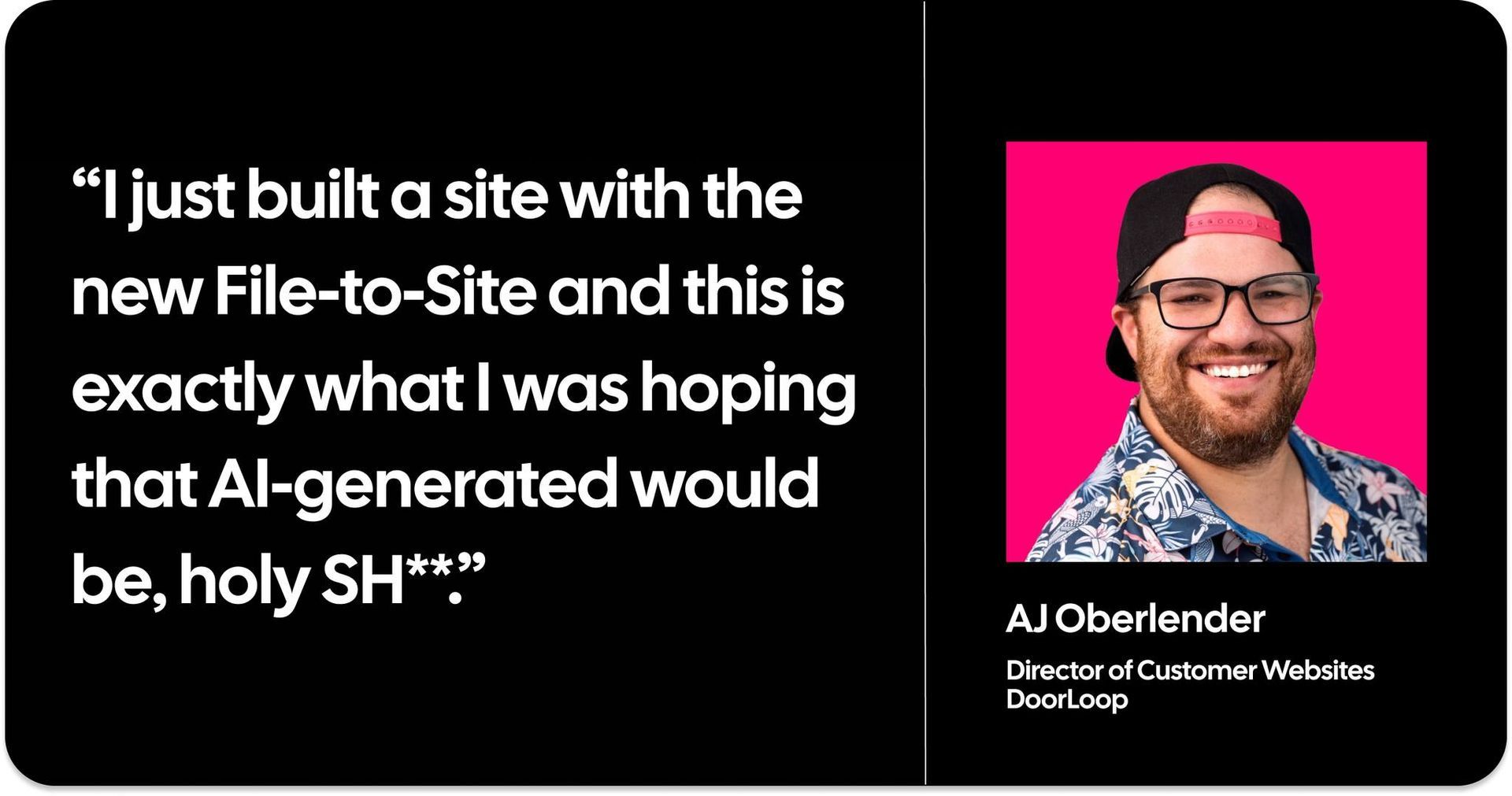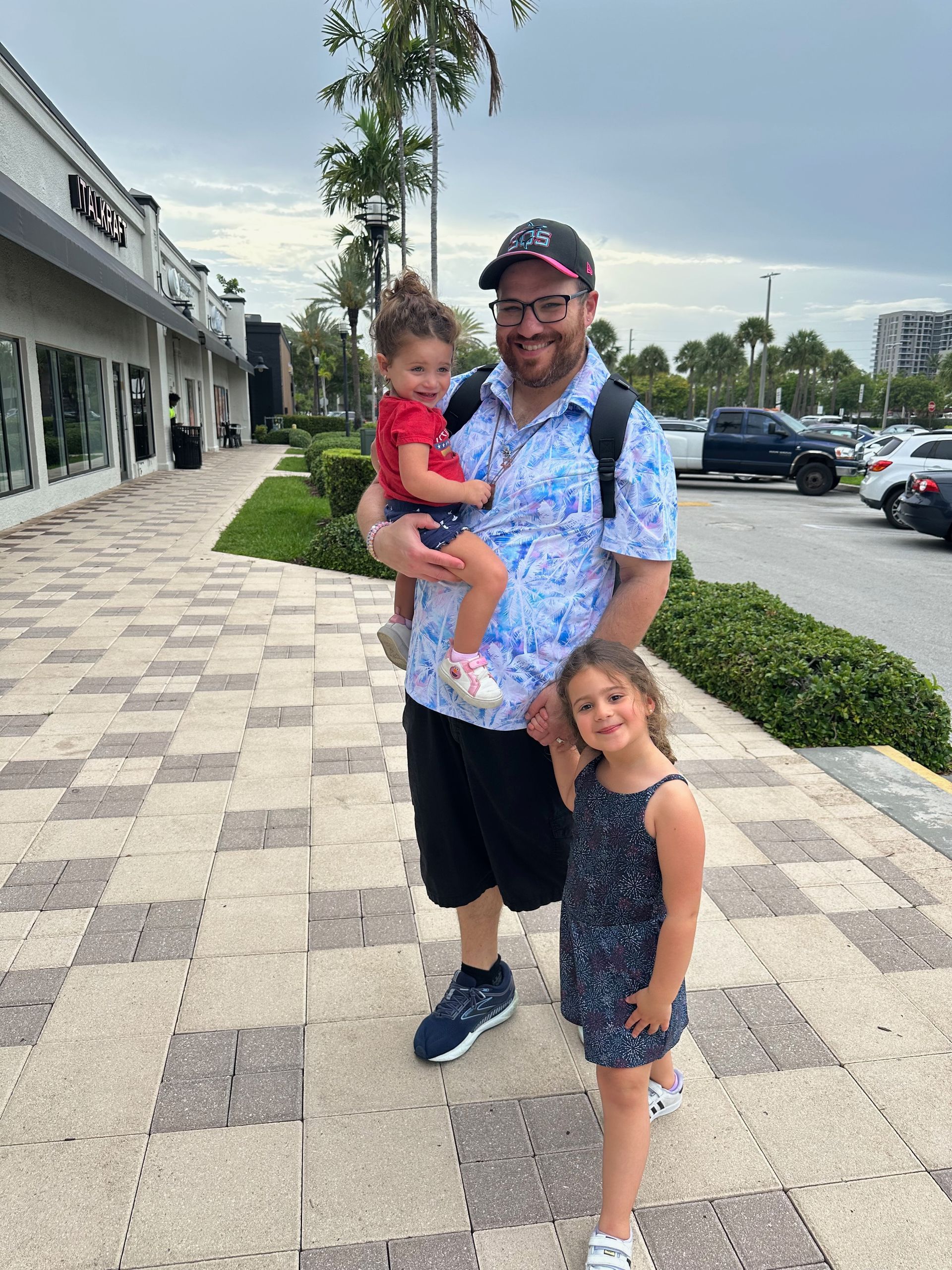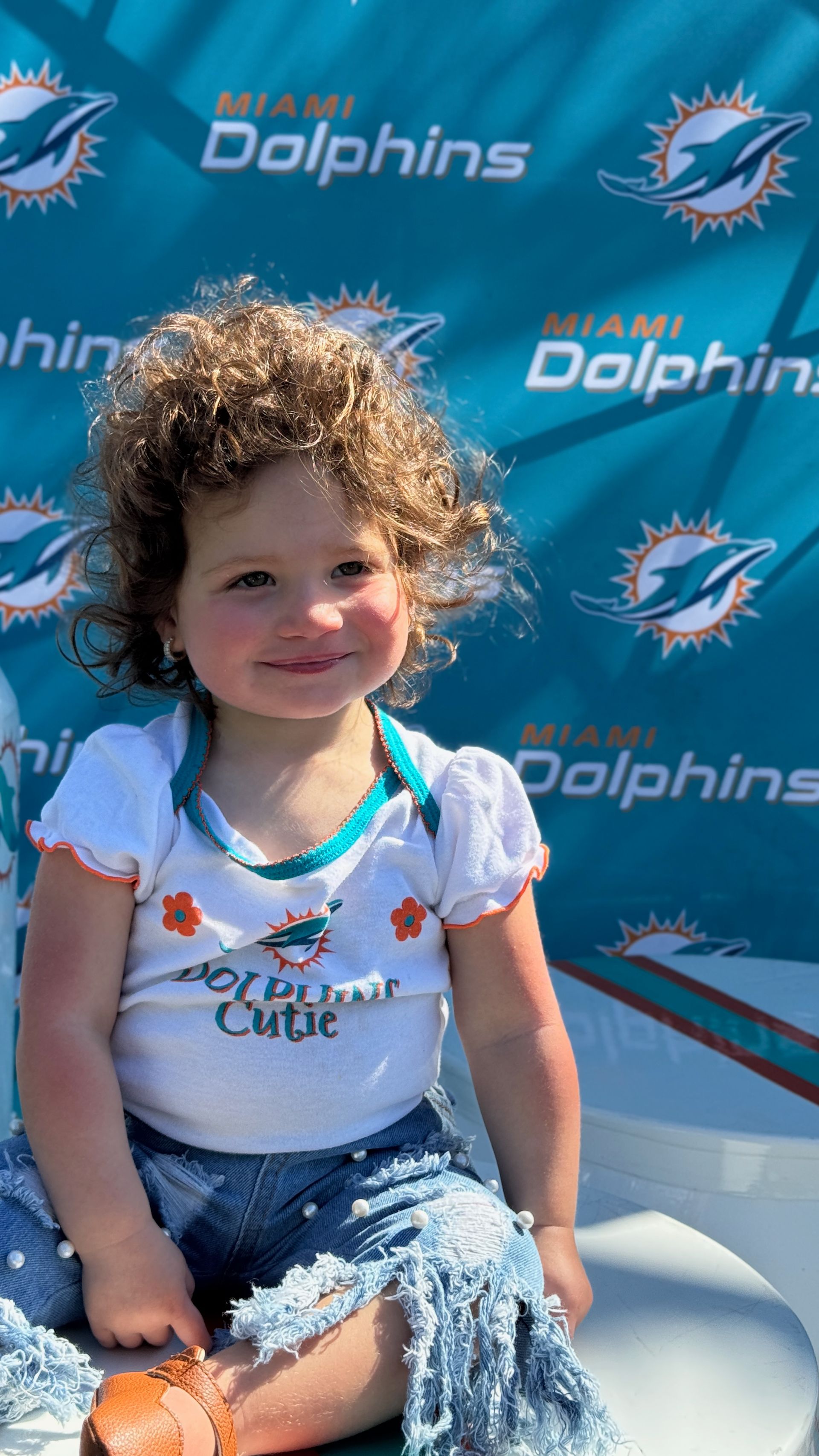
How Treating Employees Like VIPs Transforms Company Culture (And Your Bottom Line)
How Treating Employees Like VIPs Transforms Company Culture
Some companies just nail the human experience. This week, Mazi and I had lunch at the the new Eataly in Aventura Mall. The service was exceptional, the staff never let our glasses get below halfway before appearing to refill them. The food was perfect, but honestly, the service made the night.
My dad's had Miami Heat season tickets since day one, and over the years his various reps haven't just been salespeople, they've become genuine friends. They check in on him when he's been out for a few games, he tells them about his grandchildren, they share stories about their own kids. It's real relationship building.
That's not an accident, that's intentional human psychology at work. Most companies are doing the exact opposite with their employees.
While places like Eataly and organizations like the Heat are treating people like valued relationships, most workplaces are stuck in the generic corporate mindset. You know what I mean, here's your desk, here's your login, here's the employee handbook, good luck figuring out who actually cares about your success. Except instead of customers, we're talking about the people who literally make or break your business every single day.
Here's the thing that's got me fired up: the smart companies are finally catching on. They're stealing these relationship-building playbooks and transforming their workplace cultures in ways that would make my dad's Heat rep proud.
And the results? Oh man, the results are bananas.
The engagement crisis that's keeping CEOs up at night
Let's start with the wake-up call that should have every executive reaching for their emergency coffee (or something stronger). Global employee engagement crashed to just 21% in 2024 , down from 23% in 2023.
Now, I know what you're thinking, "AJ, that's only a 2% drop. How bad could it be?"
Well, buckle up, because this is only the second decline in engagement we've seen in the past 12 years. Translation: your workforce is checking out faster than guests fleeing a one-star Yelp hotel.
But wait, it gets worse. Manager engagement plummeted from 30% to 27% in 2024 , the largest decline among all employee groups. And here's the kicker that should really keep you up at night: 70% of team engagement is directly attributable to the manager.
Think about that for a second. When your managers are disengaged, they're not just phoning it in themselves, they're taking entire teams down with them like a poorly managed group vacation where the tour guide clearly doesn't want to be there.
Plot twist though: fully remote workers are actually the most engaged at 31%, absolutely crushing on-site workers at 20%. So much for the "we need butts in seats" argument, right?
The financial damage? Try $438 billion in lost productivity globally due to disengagement. That's not a typo, we're literally hemorrhaging money because we're treating our most valuable assets like room service orders instead of VIP guests.
What luxury hotels figured out that your company hasn't
I've always been fascinated by how the luxury hospitality industry operates. These folks have spent decades, literally decades, perfecting the art of making people feel extraordinary. And it's not just about thread counts and fancy lobbies (though those help). It's about a systematic, almost scientific approach to human psychology.
Take the Ritz-Carlton's famous $2,000 rule. Every employee, and I mean every single one, can spend up to $2,000 per guest, per incident, without manager approval.
Let that sink in for a moment. They trust their people to make decisions and solve problems instantly. Compare that to your average corporate environment where employees need three approvals to order paper clips. (Okay, maybe that's a slight exaggeration, but you get the point.)
The Four Seasons built their empire on something so simple it sounds almost silly: the Golden Rule. "Treat others as you want to be treated." Revolutionary? Not really. Effective? Absolutely. Their employees receive 250+ hours of training annually, that's more than many companies invest in their entire leadership development programs.
What really gets me excited is their "Culture of Yes" approach. Instead of explaining why things can't be done (looking at you, IT department), hospitality professionals are trained to find ways to make things possible. Imagine if your entire organization operated like a concierge service instead of a fortress guarding the supplies closet.
The companies absolutely crushing it right now
Let me tell you about some companies that are making the rest of us look bad in the best possible way.
Southwest Airlines has been treating employees like VIPs for decades, and their track record is bonkers good. Eight consecutive years on Fortune's Best Places to Work list isn't luck, that's strategy. Their "Culture of Caring" approach gives leaders actual budgets to spend on employee care. We're talking flowers for bereavements, baby gifts for new parents, surprise celebrations for work anniversaries.
Here's what blew my mind: Southwest has consistently ranked #1 in customer service metrics 26 times in 34 years. When you treat employees like VIPs, they treat customers like royalty. It's this beautiful virtuous cycle that basically prints money.
Hilton made history as the first hospitality company to achieve #1 World's Best Workplace. Their "Heart of House Program" completely redesigns those dreary back-of-house employee areas with vibrant colors, Wi-Fi, and environments that actually inspire people. They didn't just improve working conditions, they created experiences.
The results? 96% of their employees say it's a great place to work versus 57% at typical companies. That's not an improvement, that's a complete transformation.
Even healthcare is getting in on this action. Bronson Healthcare implemented employee concierge services and saw a 54% reduction in overall employee turnover and 49% reduction in nursing turnover. In an industry that's been hemorrhaging staff, those numbers are absolutely game-changing.
The ROI that'll make your CFO do a happy dance
Okay, let's talk about everyone's favorite topic: money. Because at the end of the day, if treating employees like VIPs doesn't move the financial needle, it's just expensive feel-good theater.
Companies investing in employee experience management tools see ROI upwards of 300%. Three hundred percent. That's not a nice-to-have investment, that's a "how fast can we implement this" investment.
The productivity impact alone should get your attention: engaged employees are 17% more productive , and companies with high employee engagement see 20% increases in sales. When you treat people like VIPs, they perform like superstars. Shocking, I know.
Here's my favorite stat: Fortune 100 Best Companies to Work For earn 8.5x more revenue per employee than the average public company. Eight and a half times. That's not a rounding error, that's a fundamental business advantage that compounds year over year.
The turnover savings alone justify the investment. Companies with strong employee experience programs see 40% reductions in turnover. With average replacement costs ranging from 50-200% of annual salary, the math is pretty simple: retention equals revenue.
Your VIP treatment playbook (because I know you were asking)
So how do you actually do this? How do you transform from budget motel management to Four Seasons leadership without breaking the bank?
Start with employee journey mapping. Just like hotels map guest experiences from booking to checkout, you need to map employee experiences from that first recruiter call to (hopefully way in the future) alumni relations. Companies using journey mapping see 25.3% year-over-year improvement in employee engagement versus 10.8% without. That's not a marginal improvement, that's a competitive advantage.
Personalization is your secret weapon. Generic recognition programs fail because they assume everyone wants the same rewards. Some employees crave public recognition, others prefer private appreciation or flexible work arrangements. Mass customization, balancing standardization with individual touches , is where the magic happens.
Employee concierge services are having a moment, and for good reason. For $3-8 per employee per month, companies are offering everything from dry cleaning pickup to travel planning. 93% of employees report reduced stress levels and 92% report better work-life balance. That's not just a perk, that's a productivity multiplier.
VIP onboarding experiences set the tone for everything that follows. Instead of generic orientations (you know, the ones where someone reads PowerPoint slides about the company history while everyone checks their phones), create personalized welcome packages, assign dedicated onboarding specialists, and treat first days like luxury hotel check-ins.
The wisdom from people smarter than me
The insights from hospitality leaders and HR innovators reveal the psychological principles behind all of this VIP treatment stuff.
Richard Branson nails it : "Clients do not come first. Employees come first. If you take care of your employees, they will take care of the clients." This isn't feel-good fluff, it's strategic thinking that's built multiple billion-dollar companies.
Will Guidara , the guy behind some of the world's most legendary restaurants, puts it perfectly: "Making good products is no longer enough. Serving them efficiently is no longer enough. It's how we make people feel that matters most of all."
Think about that in the context of your workplace. In a world where most products and services are commoditized, emotional connection becomes the differentiator. Your employee experience isn't just about productivity, it's about creating advocates who genuinely want to see your company succeed.
The landmines that'll blow up your program
Let me save you some heartache by sharing the mistakes I see companies make over and over again.
The biggest one? Surface-level improvements without addressing the culture underneath. 92% of managers report their company's leadership development initiatives need improvement , yet organizations keep deploying generic, one-size-fits-all programs. It's like putting fresh paint on a house with a cracked foundation.
Since 70% of engagement is attributable to managers, fixing the manager problem isn't optional, it's the foundation everything else builds on.
Over-promising and under-delivering is program suicide. Companies make grand announcements about employee experience transformations, then fail to provide adequate resources or sustained commitment. When reality doesn't match promises, engagement levels don't just stay flat, they crater.
Cultural misalignment creates cynicism faster than you can say "employee appreciation day." Programs that feel like checking boxes rather than genuine care get sniffed out immediately. Employees have finely tuned BS detectors, and they know when initiatives are performative versus authentic.
Here's one that really gets me: the measurement trap . Companies collect massive amounts of feedback data but don't take action on insights. Survey participation drops when employees see no follow-through. Feedback without action is worse than no feedback at all.
So, what now?
Look, here's the thing, treating employees like VIPs isn't just some nice-to-have initiative you roll out when times are good. With 300% ROI on employee experience investments, 40% reductions in turnover, and 21% increases in profitability, the business case is absolutely bulletproof.
The hospitality industry spent decades perfecting the art of making people feel extraordinary. Their systematic approaches to service, empowerment, personalization, and continuous improvement provide a proven blueprint that any company can adapt.
The companies winning the talent war have stopped thinking like traditional employers and started thinking like hospitality directors. They've realized that in a world where products and services are increasingly commoditized, the employee experience is the ultimate differentiator.
The choice is pretty simple: keep treating employees like budget motel guests and watch them check out (literally and figuratively), or roll out the red carpet with VIP treatment and watch your business transform.
The research shows exactly how to do it, what it costs, and what you'll gain. The technology enablers are finally here. The case studies are compelling. The ROI is proven.
The question isn't whether you can afford to treat employees like VIPs. The question is whether you can afford not to.
Time to start thinking like a concierge instead of a corporate overlord. Your employees, and your bottom line, will thank you for it.
What's your take? Have you seen VIP employee treatment work (or fail spectacularly) at your company? I'd love to hear your war stories. Hit me up on LinkedIn or drop me a line, let's figure out how to make work feel less like work and more like a five-star experience.

